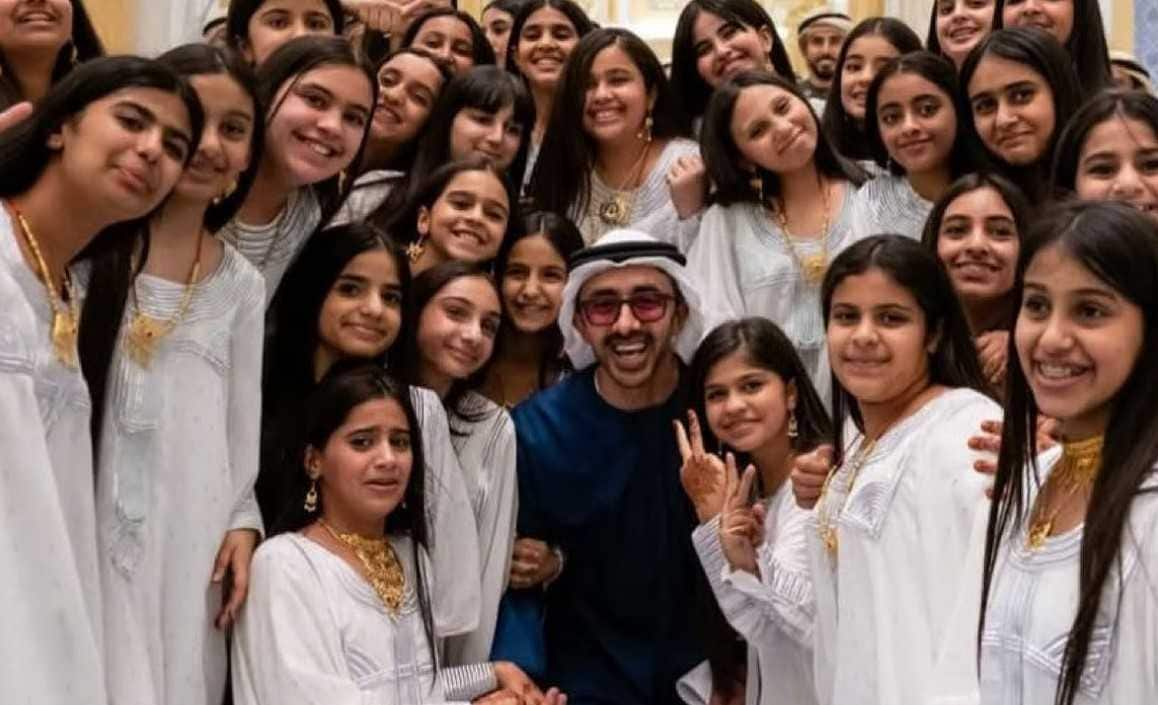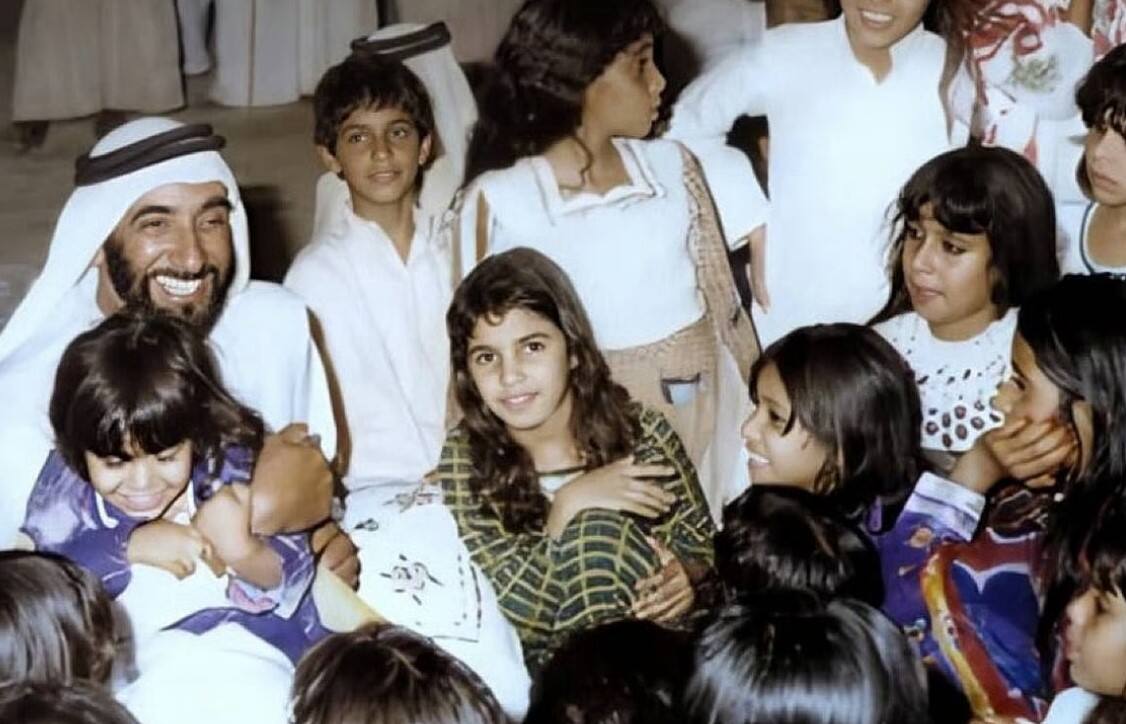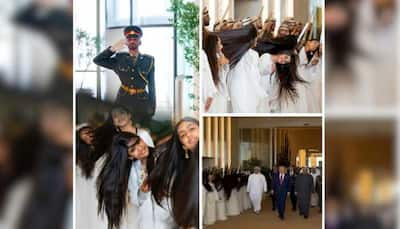As the golden sun cast its final light over Abu Dhabi’s horizon on May 15, 2025, the scene outside the grand palace glowed with something far deeper than ceremony – it shimmered with heritage.
On that day, US President Donald Trump arrived in the United Arab Emirates. Before words could be exchanged or hands shaken, a story was told. Not with speeches or symbols, but with rhythm, pride and poetry.
Waiting in perfect formation were the carriers of that tale – young Emirati girls dressed in brilliant traditional attire and Emirati men holding aloft slender canes, ready to perform Al Ayyala, the soul of the Emirates in motion.
To an unknowing eye, it might have looked like a dance. But to the Emiratis, it was history unfolding.
Al Ayyala is not a dance that seeks applause – it is a declaration of legacy. Born from the traditions of the Bedouin warriors, it mimics the battlefield with sticks in hand and chants of loyalty on their lips. The girls, standing like sentinels of grace, swing their hair from side to side – a gesture not of rebellion but of celebration.
In their movements is the echo of generations who passed down songs not just with sound but through soul.
To everyone confused by the “hair swinging” ritual in Trump’s UAE visit:
That wasn’t random. That wasn’t a TikTok dance.
That was ancient. Intentional. Royal.
Here’s what it really meant:
The ritual is known in Gulf Arab culture especially in the UAE as part of a ceremonial…
— 589bull (@589bull10000)
It is this performance that greeted Trump – bold, authentic and unfiltered. And as the world tuned in, confusion quickly mingled with curiosity. Social media was abuzz with hot takes, but amid the noise, Emiratis found their voice to speak.
Among the first to rise to its defence was Sara Al Hosani, a journalist whose calm but unwavering words sliced through the chatter. Posting a video online, she said with pride, “Our heritage does not need permission to exist. It stands tall, just like the daughters who carry it forward.”
To critics who misjudged the young girls’ participation as “oppressive”, she asked sharply, “Oppression? What oppression? These are daughters of the desert, not damsels in distress.”
One of the most powerful and beautiful moments during President Donald Trump’s visit to the UAE was the traditional welcome by beautiful young Emirati girls that triggered a lot of haters.
Our heritage doesn’t need permission to exist. It stands tall, just like the daughters who…
— Sara Alhosani | سارة الحوسني (@SaraAlhosani_10)
She reminded the world that young girls were not obligated by religion to wear hijab yet, and more importantly, that they were proud to embody their culture, not victims of it.
Echoing her sentiment, Emirati public commentator Hassan Sajwani wrote on X: “This is my identity. This is my tradition. This is my cultural hospitality. This is my nation, the United Arab Emirates. And I am very proud of all of it.”
This is my identity
This is my tradition
This is my cultural hospitality
This is my nation, the United Arab Emirates
And I am very proud of all of it.
Thank you to our little angels for welcoming President Donald J. Trump in the UAE
— حسن سجواني Hassan Sajwani (@HSajwanization)
Sajwani’s pride, like that of many others, was not just in the performance; it was in how seamlessly it stitched together past and present, politics and poetry and honour and humility.
But perhaps the most touching moment came not in the grandeur, but in the gentleness.
Sarah Fahmi, a content creator from Dubai, highlighted a simple yet powerful image – UAE President Sheikh Mohamed bin Zayed Al Nahyan introducing a child to a visiting head of state.
“Where else in the world do presidents bend down to greet a child in the middle of a state visit?” she asked.
She went on to point out how. In another moment, the young girls could be seen rushing towards UAE Foreign Minister Sheikh Abdullah bin Zayed, asking for pictures – smiles wide and eyes gleaming.
“That is not performance. That is belonging,” Fahmi said.
As images flooded timelines, one collage stood out. On the left: Sheikh Zayed, the founding father of the UAE, standing tall as Al Ayyala dancers moved in harmony around him. On the right: the May 15 performance, with smiling girls next to Sheikh Abdullah.


Time has passed, but the dance has not changed.
Because some things do not need to be reinvented; they just need to be remembered.
In a world rushing to modernise, few things survive untouched. But the Al Ayyala is not one of them. It continues to thrive not because it resists time, but because it embraces identity.
It is a living heartbeat of a nation that knows who it is and welcomes the world not with fanfare – but with rhythm, grace and sticks that speak louder than words.
Stay informed on all the , real-time updates, and follow all the important headlines in and on Zee News.







